UXNow, an annual and highly esteemed UX design conference in Delhi NCR, stands out as a pivotal event in the realm of user experience. In the wake of our collective return to normalcy post-pandemic, this two-day conference serves as a beacon shedding light on the ever evolving landscape of UX design. Now more than ever, UX has emerged as a comprehensive field that seamlessly integrates business, technology, and AI into the design process.
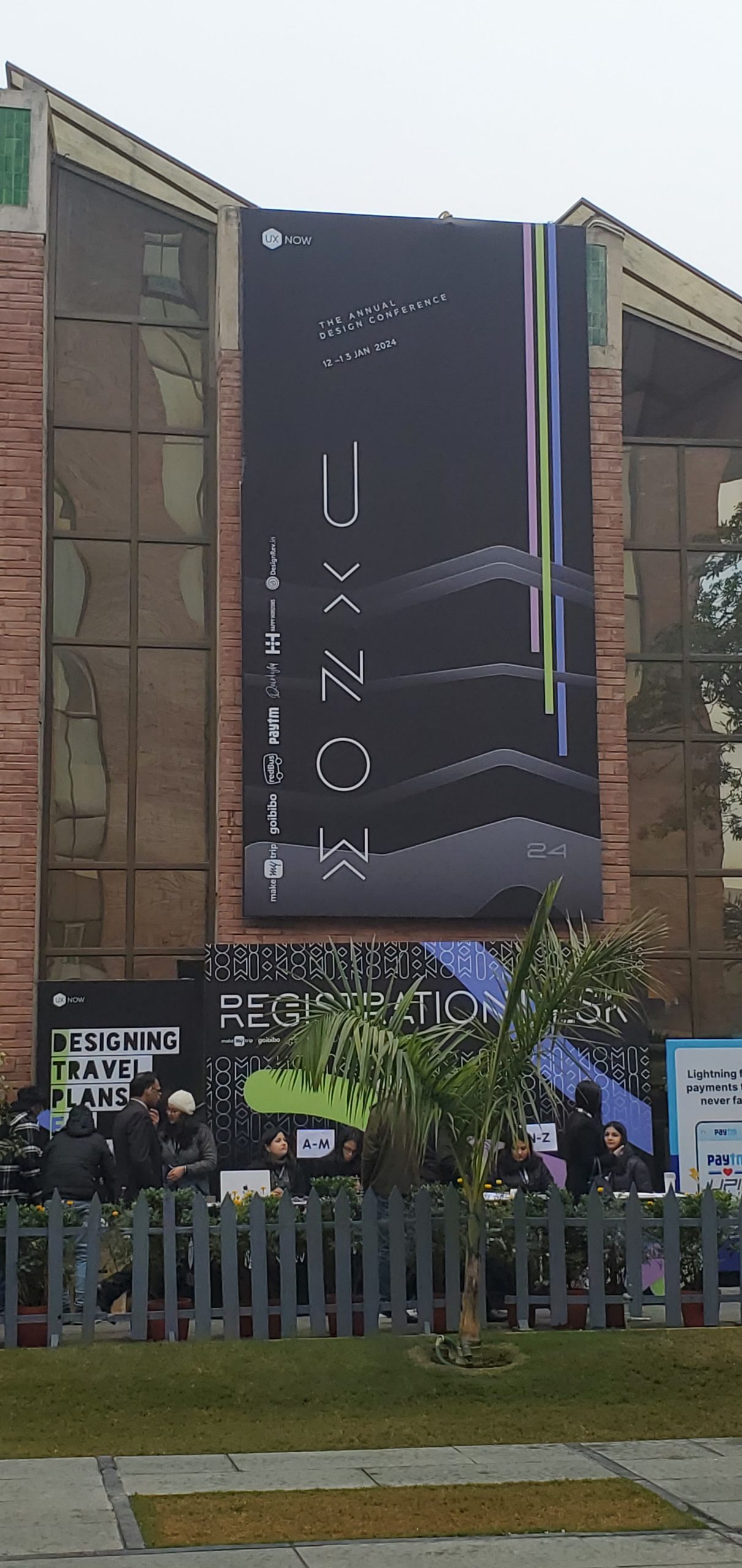
UXNow, the two-day event held this year on the 12-13 January, was organized by The event was hosted by MakeMyTrip Pvt Ltd, the parent organization of MakeMyTrip and Goibibo. The conference was sponsored by PayTM and Quirkify, with partners Happy Horizons, DesignRev.in, and DesignWhine. The show was hosted by Aditi Bhatt, a senior UX designer at MakeMyTrip, and Palak Verma, a designer at the MakeMyTrip Flights division.
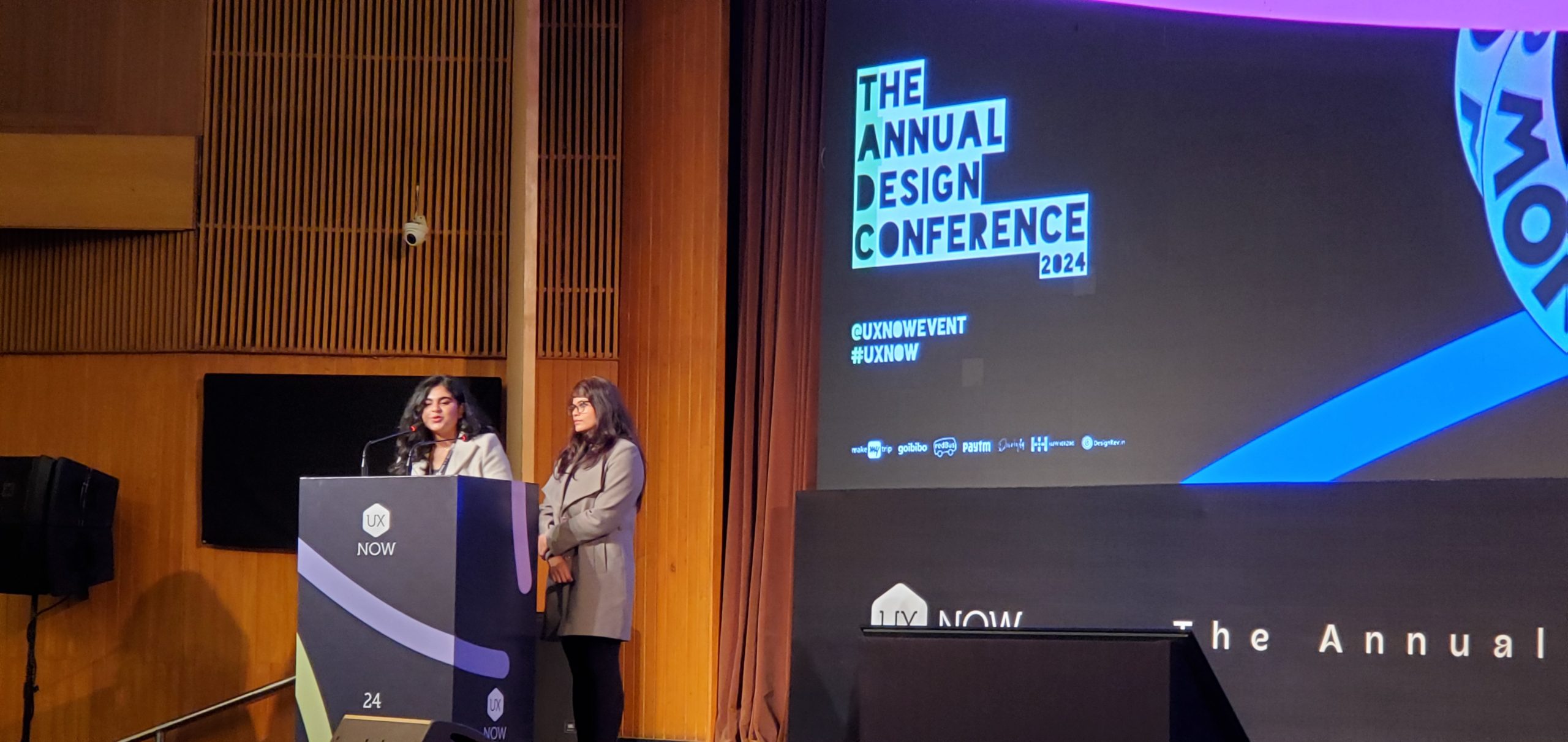
With an opening welcome note by Aakash Kumar, who heads the design department at MakeMyTrip and GoIbibo, extending a warm welcome to the participants on a chilly Delhi winter morning (the temperature was 7 degrees Celsius on the day!), the stage was set for the first speaker of the day, Sameer Bhiwani, a design leader at Google.
Sameer delved into the realms of creativity and the pursuit of passion. Drawing incredible references to Vera Molnár, a Hungarian artist and pioneer, often hailed as the grand dame of generative art, and empathetic creators from Dead Poets Society, he emphasized the paramount importance of human judgment, asserting its superiority over AI judgment and the need to avoid creating or reinforcing unfair bias. The crux of his discourse conveyed that purpose outweighs tools, human judgment surpasses machine judgment, and, critically, passion equates to creativity.
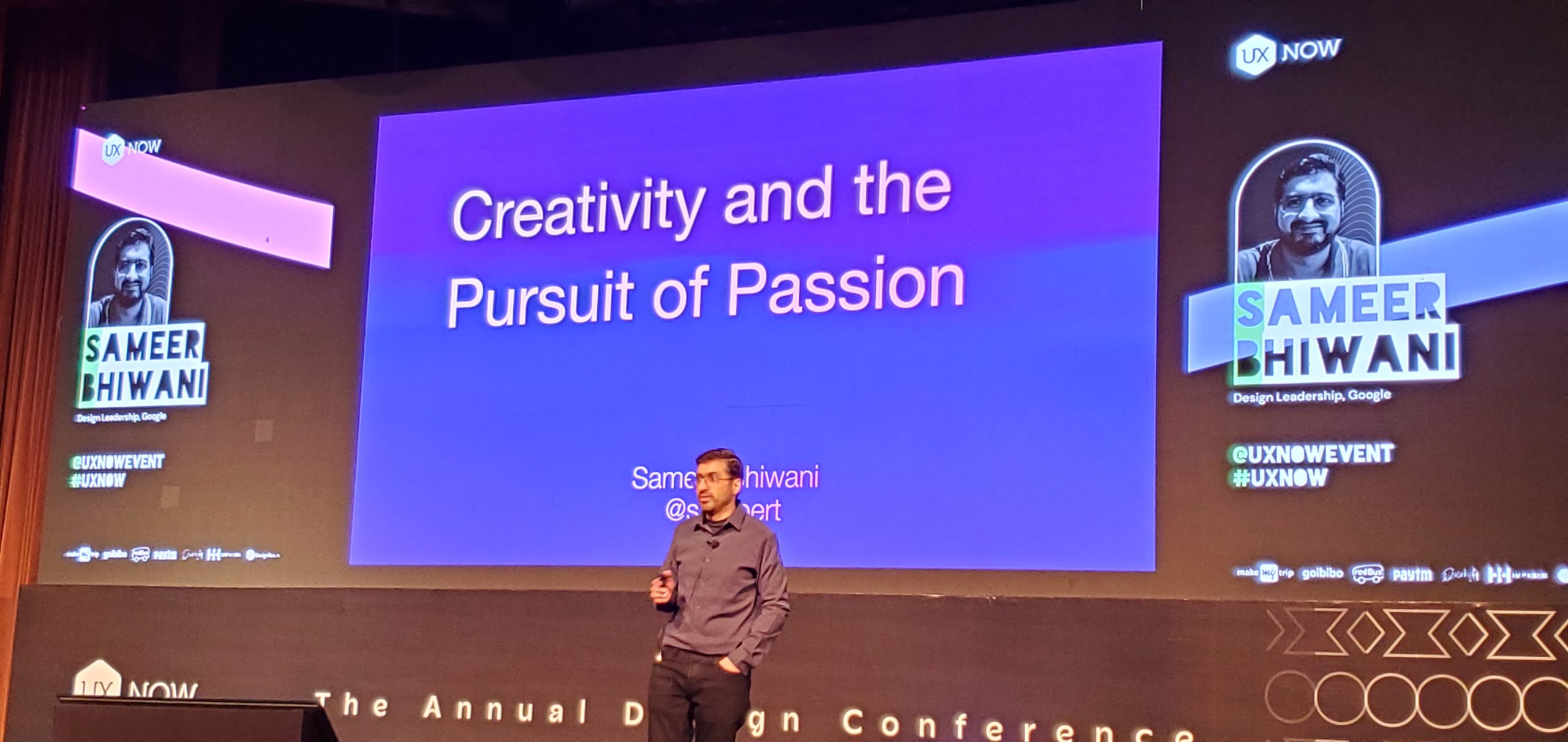
In the second session, Indi Young, a thought leader in Product Strategy, virtually connected to the conference from San Francisco and delved into the topic of fostering diverse thinking styles with a foundation of deep listening. She underscored the significance of understanding that individuals are concentrated on their purpose, not necessarily our solutions for them. Using an analogy likening it to layers of candy, she highlighted the crucial aspect of listening deeply, akin to peeling back layers to comprehend the intricacies of their perspectives.
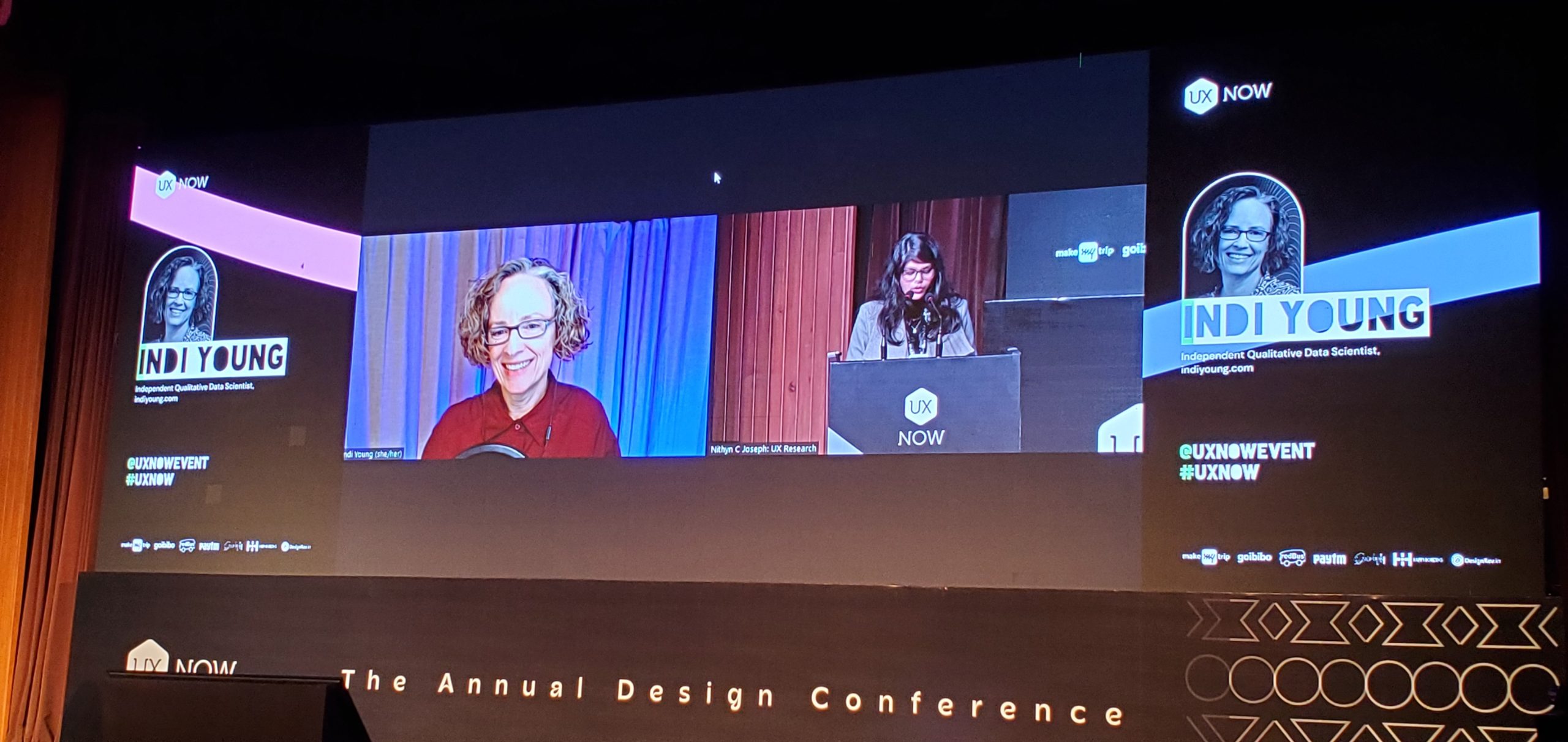
In the third session, Juhi Chitra, a product designer running Studio Sense and former Head of Design at Zomato, delved into the theme of “Preserving the Spark While Surviving in Design.” She shared how the spark ignited her interest in computers at the age of 7 when her family gifted her a computer. Juhi discussed the challenges of thriving in the design field, touching upon the difficulties designers face with Imposter Syndrome. Evaluating oneself and one’s skills in design becomes intricate. Keeping pace with the ever-evolving industry demands a full-time commitment, leading to the pressure of maintaining a design-related passion outside of work and contributing to the prevalence of Imposter Syndrome. Juhi encouraged embracing seemingly pointless indulgences to find balance in navigating the dual nature of design as both a profession and an identity.
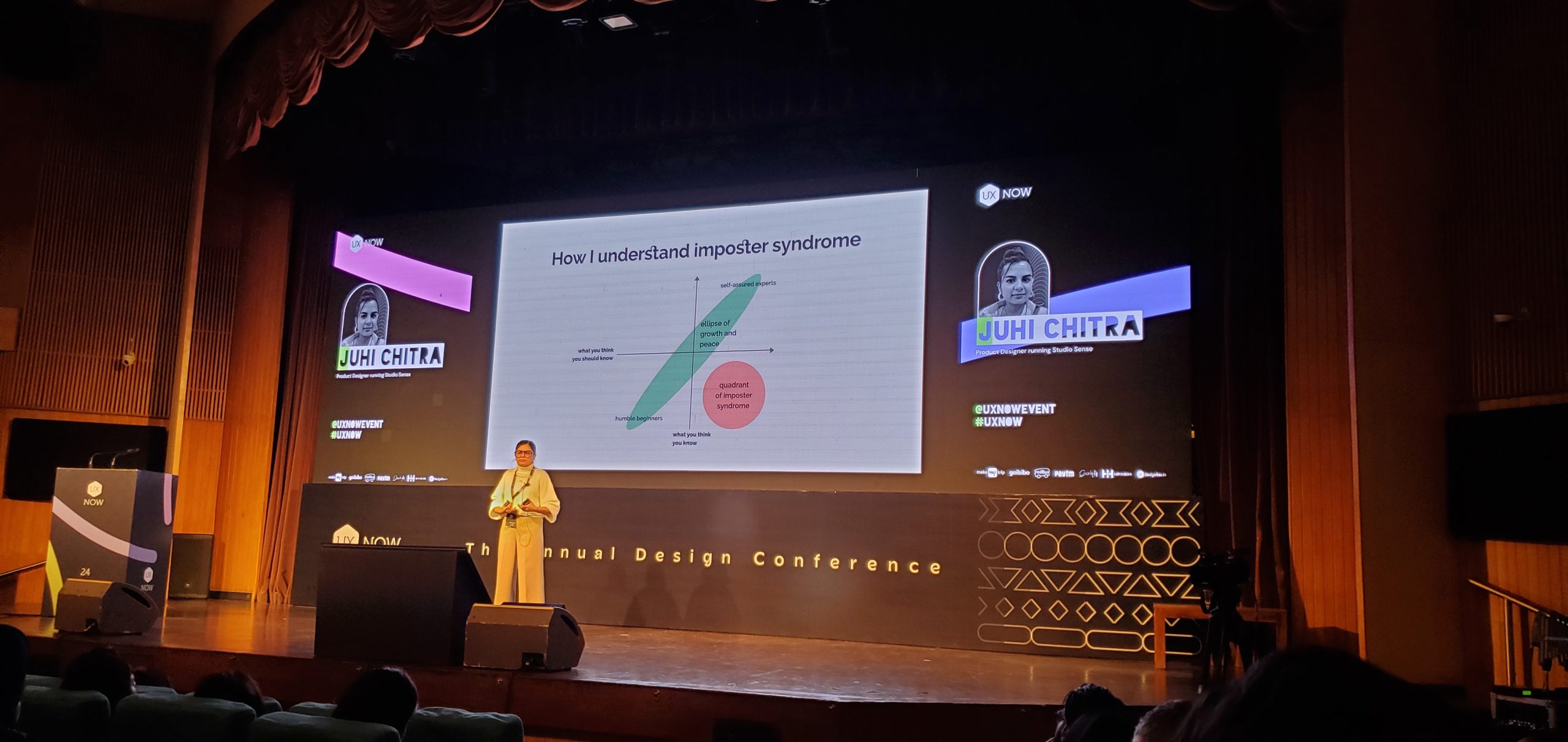
The fourth session featured Rasagy Sharma, a senior design manager at Capital One, equipped with a master’s in design information from NID, Ahmedabad. His presentation, titled “Swimming in Data (as the AI wave approaches),” offered captivating insights into navigating the vast realm of available data. Rasagy introduced the concept of the data pyramid, starting with Data as the foundational layer and progressing upward through layers of information, knowledge, wisdom, and meaning. He showcased a project involving schematic hometown maps and sensory maps, demonstrating the transformation of raw data into engaging and experiential visual wonders. Rasagy explored the possibilities for designers working with data and provided valuable tips on how to effectively exhibit, explain, explore, and experience data.
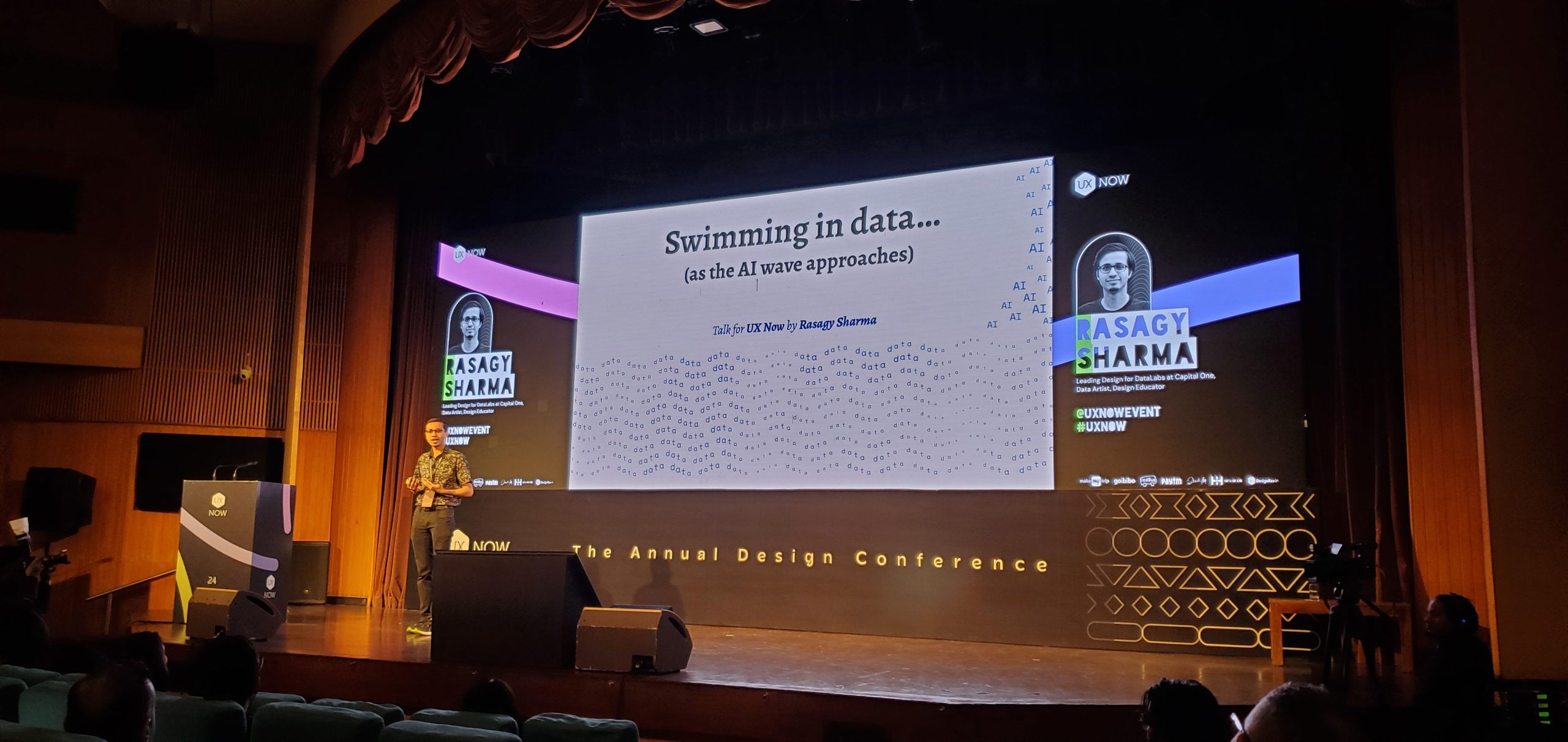
Rasagy also presented remarkable examples of creative data visualizations from his students. Notably, one student crafted a unique piece – the Binge Blanket – a hand-woven masterpiece intricately embedded with data representing her Netflix viewing activity throughout 2021. Each yarn strand denotes an hour of binge-watching on a specific day, with colors reflecting genres and beads indicating the date of streaming. This tangible and personalized data visualization serves as a captivating exploration of viewing patterns and preferences.
Yet another student had designed the “Lumos Maxima.” The project, named “Lumos Maxima,” involves a visual representation of the author’s unread books using sunlight and shadows, with color changes denoting the passage of time. The goal is to create a constant visual reminder to seek enlightenment through reading, leaving the impact on actual reading habits open-ended.

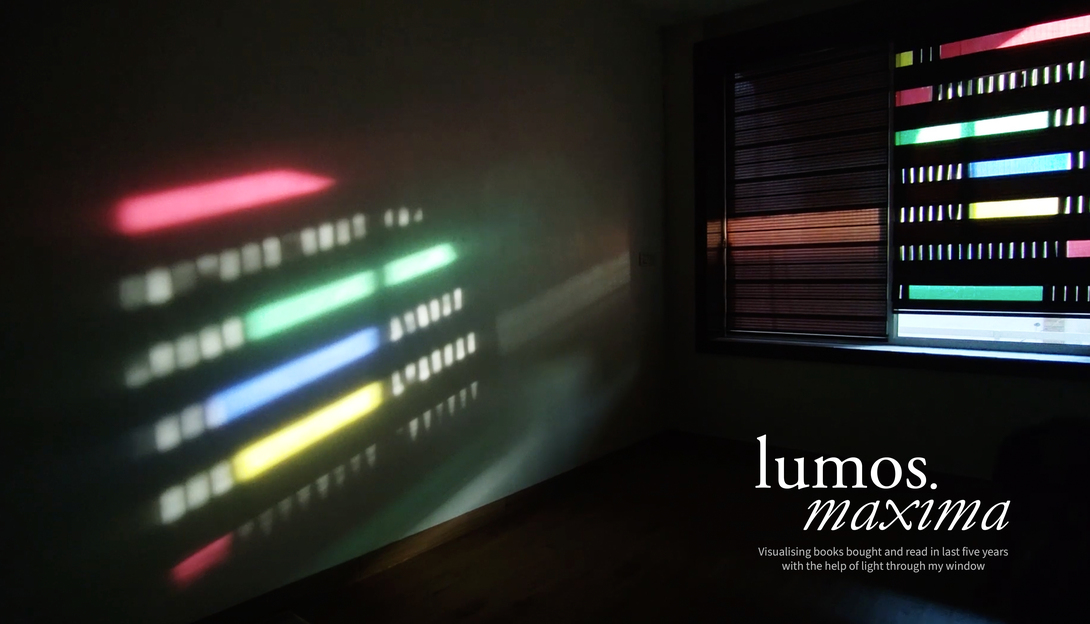
Image source: InformationIsBeautifulAwards.com
The fifth session was led by Akanksha Singh, Design Director at Expedia. She shared her insights and experiences, particularly in integrating insurance policies with flight and hotel bookings at Expedia. The session, aptly titled “Emotional Design in UX: Creating Products That Resonate,” delved into the key considerations for designing digital products within the context of Expedia. Singh emphasized the significance of addressing three fundamental questions: identifying potential customers, understanding their key needs and challenges during their travel journey, and determining the specific problem the product aims to solve for the customers.
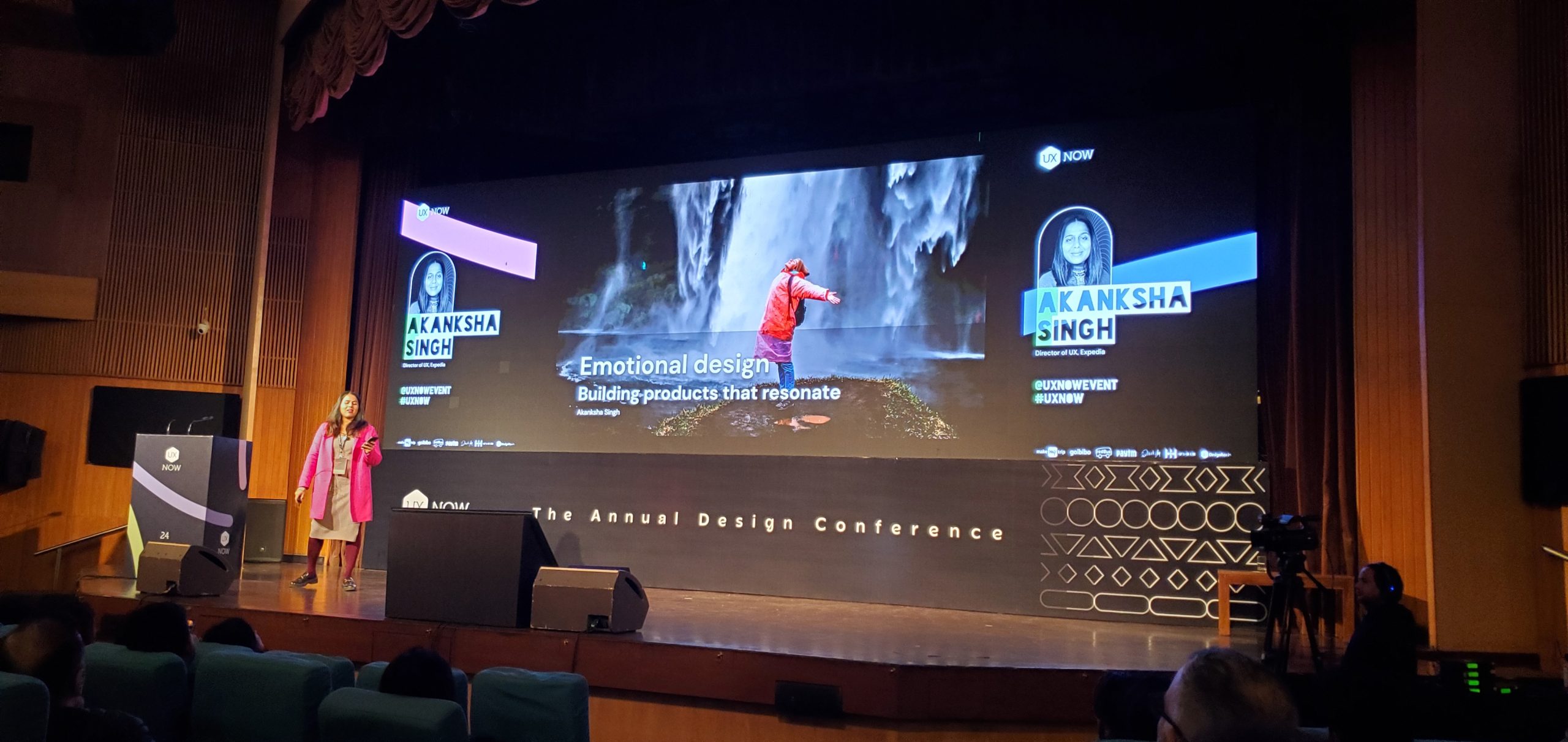
She introduced an intriguing concept of utilizing personas as a collection of challenges, beliefs, and scenarios, framing them not merely as specific users but as elements to design for. Additionally, she advocated the practice of crafting “job stories” over “user scenarios,” emphasizing a more effective approach to addressing user needs through product development.
The subsequent session featured a panel discussion on AI and its Impact on Design, expertly moderated by Parag Anand, Head of the Department at the Department of Industrial Design, SPA New Delhi. The panel included Jayesh Sachdev, Visual Artist and Founder of Quirk Box Fashion and Quirk Box Design Agency; Deepika Dutta Kapoor, Head of UX Practice at NewGen; Divyanshu Bansal, Head of Design at Lenskart; and Fatema Raja, Design Advisor & Creative Strategist from Bangalore. The panel delved into pertinent questions regarding AI’s role in UX design, unanimously asserting that, in its current state, AI functions more as a tool aiding designers rather than posing a threat. They emphasized AI’s role as an assistant to humans, dispelling any notions of fear. Additionally, the panel acknowledged AI’s contributions to heightened productivity and efficiency, proving to be a valuable asset in the design field. However, the discussion also touched upon concerns such as deep fakes, leading to a consensus on the necessity for regulating AI.
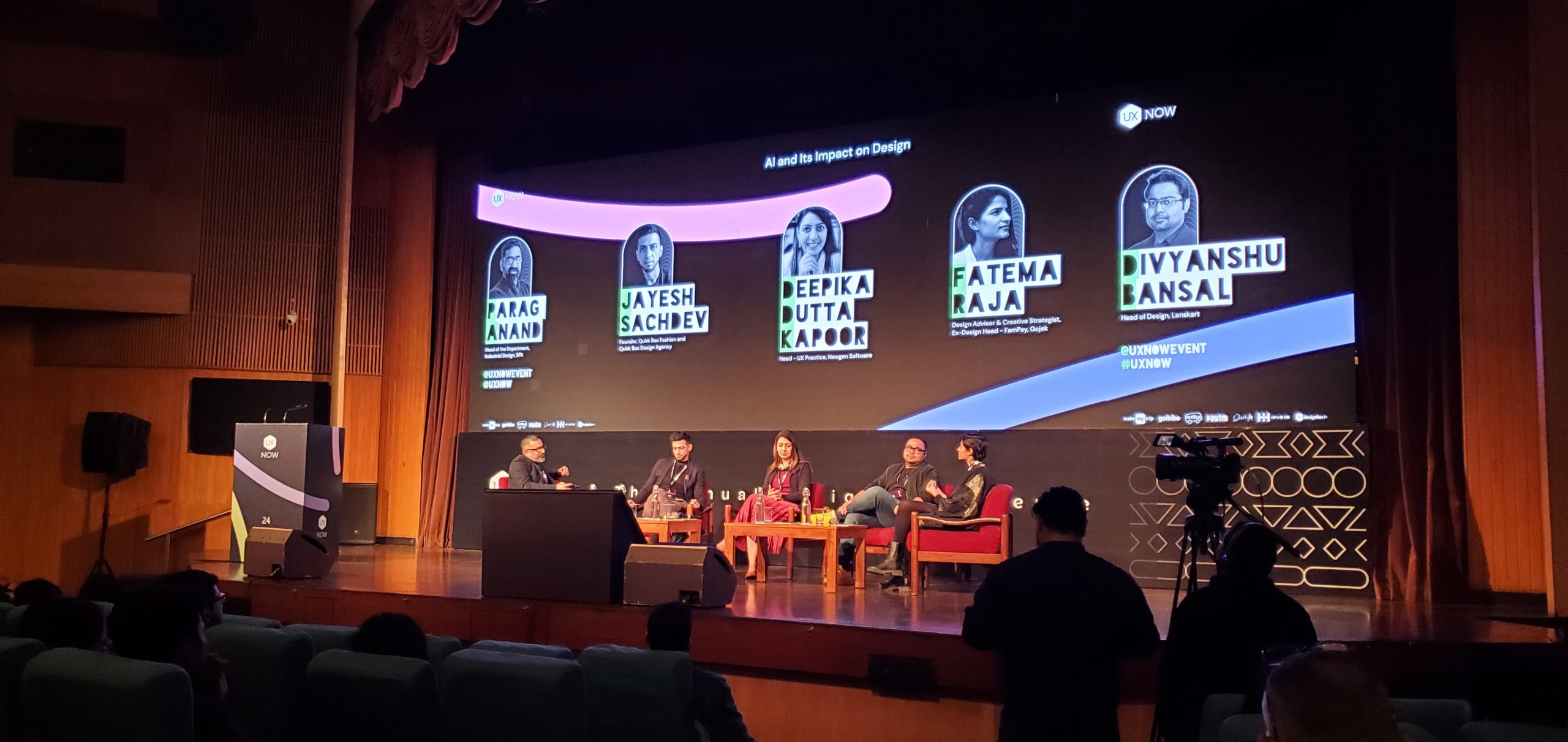
The subsequent session centered around “Sculpting GenAI for Indian Small Businesses,” led by Dharmesh Ba, founder of 1990 Research Labs. He delved into the significant challenges that Micro, Small, and Medium Enterprises (MSMEs) encounter from organized retail, e-commerce, and evolving customer preferences. Dharmesh underscored the critical role of AI for small business owners, emphasizing its potential to enhance workflow, boost efficiency, and augment revenue.
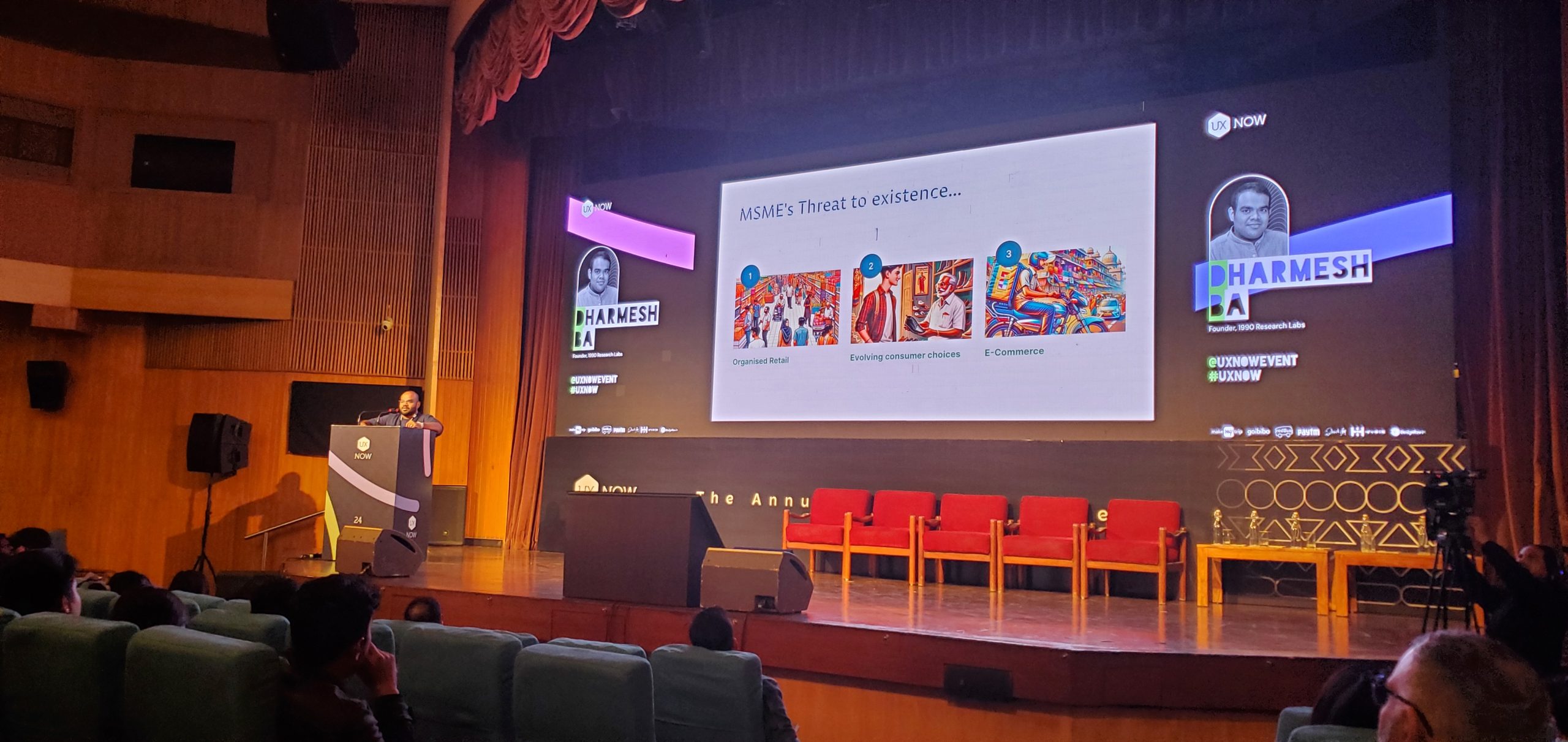
In the next session, Niyam Bhushan, a seasoned design consultant with over 40 years of experience, delved into the topic of “How Might We Sensitively Design for Privacy in India.” Niyam used meditation as a metaphor to bring a pedagogical narrative to understanding UX design in India. He conducted a critical examination of the privacy policy web pages of tech giants, contending that they are “broken by design,” rendering them incomprehensible for users. Bhushan highlighted that these tech giants exploit the privacy of the general populace, disguising it as mere “Data.” Emphasizing the impracticality of an average internet user reading all the privacy policy documents for their employed tech products (a task estimated to take approximately 7-8 hours), he shed light on the challenges users face. While apps like WhatsApp assert to safeguard user data, Bhushan argued that they are essentially “saving the data from their competitors.” His impassioned plea emphasized the imperative to design for freedom, proposing thought-provoking challenges such as culture mapping, designing for illiterates, non-tech-savvy users, and children, all with the overarching goal of empowering consent and restoring digital freedom to India.
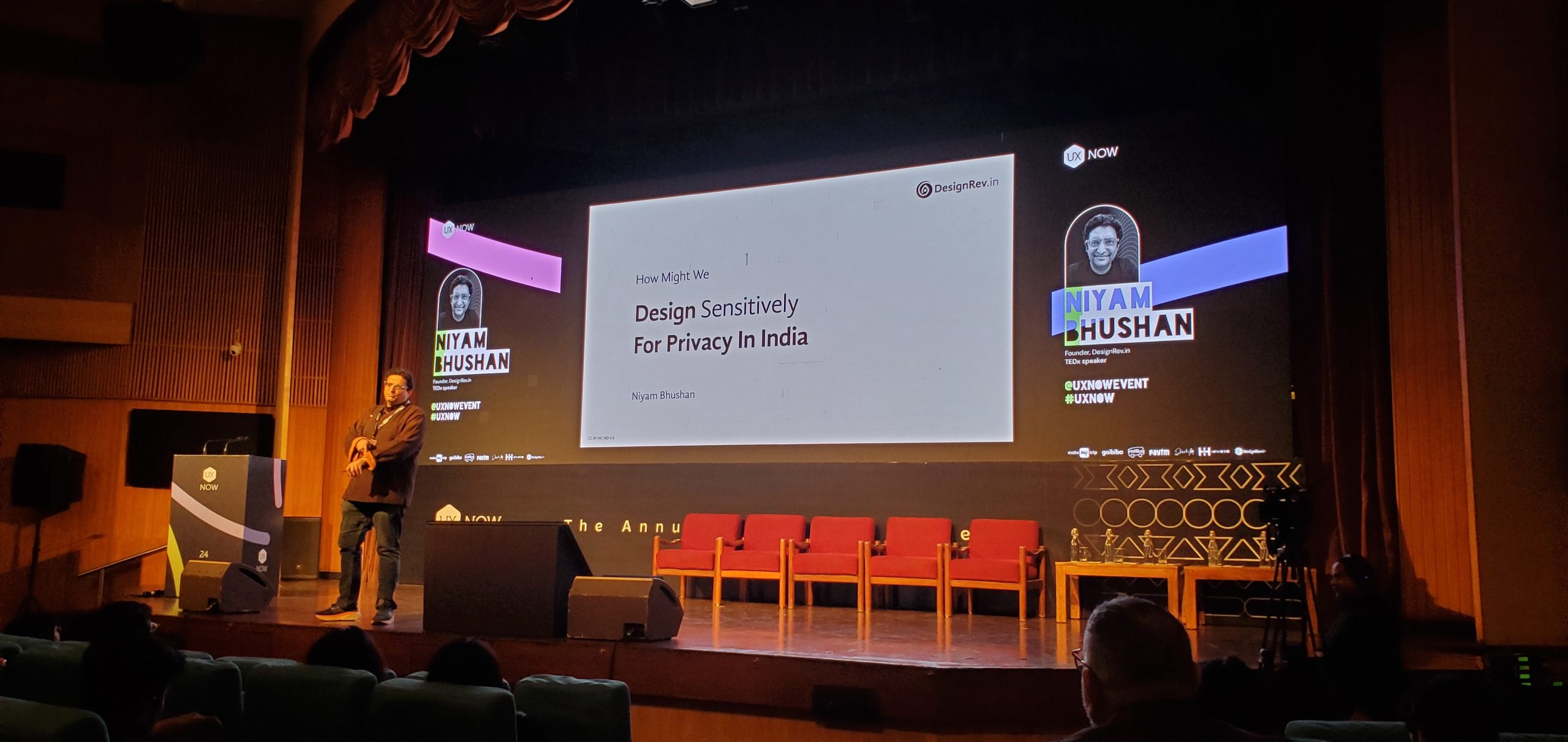
The subsequent session featured an engaging exploration titled “Crafting a Thriving Career: Beyond Design Skills,” led by Ananya Mittal, Design Manager at Microsoft. Following this, participants were treated to a thought-provoking and insightful session titled “Provoked: Problem Solving, Complexity, and a Quest for a Meaningful Life” facilitated by Kshitiz Anand, the Chief Executive Officer of Happy Horizon Group. While, Ananya Mittal delved into the multifaceted aspects that contribute to a successful career, extending beyond mere design skills. The next session, led by Kshitiz Anand, provided a captivating exploration into the realms of problem-solving, complexity, and the pursuit of a meaningful life, offering participants a unique perspective on navigating the challenges and intricacies of both personal and professional journeys.
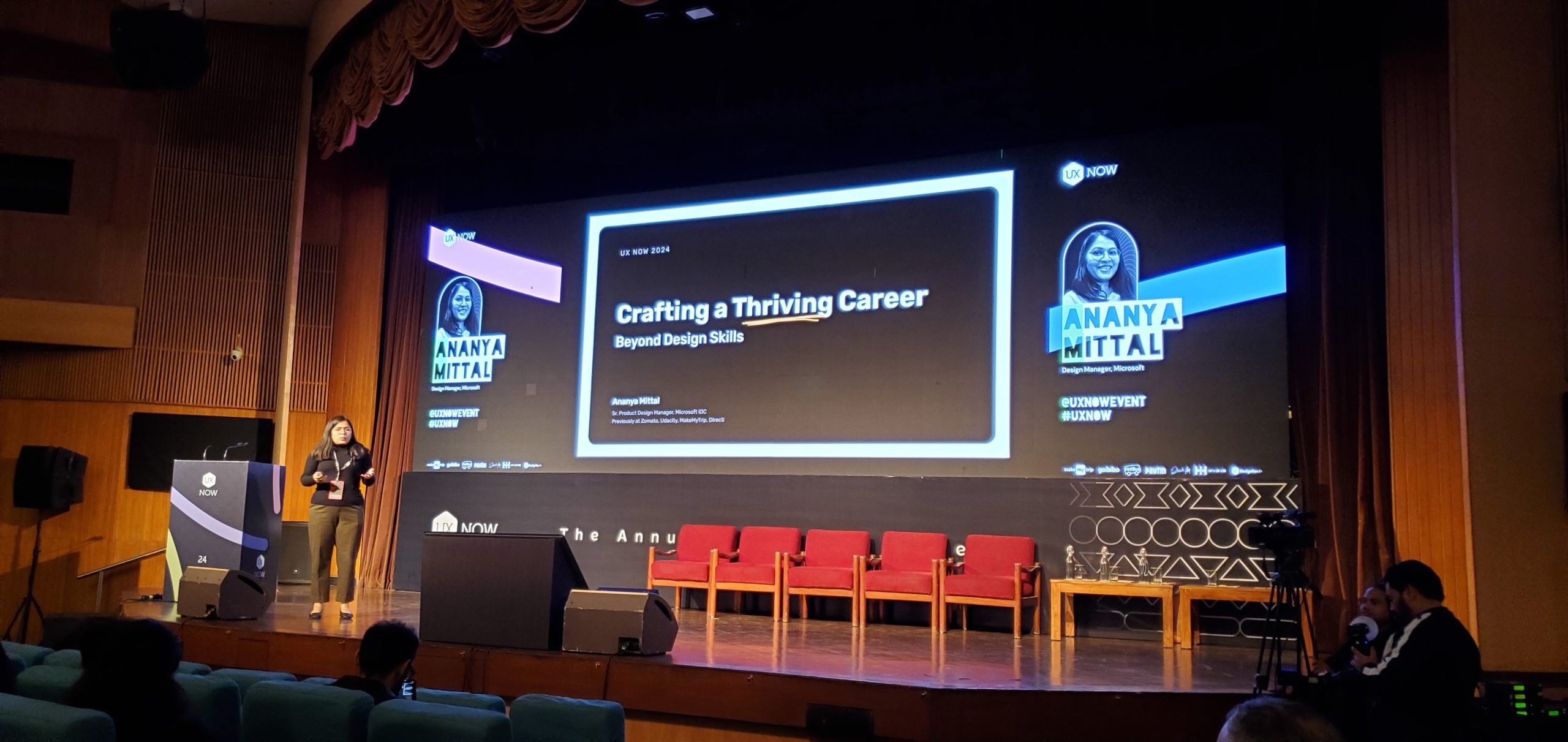
The first day of the event concluded with an insightful fireside chat on the topic of “Beyond the Pixels” with members including Aakash Kumar, Hardik Pandya, Rahul Saini. Essentially, the chat was a candid view on how design leaders take on the responsibility of navigating hidden aspects in negotiating and persuading design-led changes within an organization.
The second day of UXNow 2024 featured a diverse range of enriching workshops, each offering a unique exploration into different facets of design. Rasagy Sharma, Senior Design Manager at Capital One, delved into the ‘Art of Data Storytelling,’ providing participants with valuable insights into the narrative potential of data. Akanksha Singh, Director of UX at Expedia, led a workshop on ‘Defining an experience vision and strategy to execution,’ guiding attendees through the process of translating vision into actionable strategies. Aakash Kumar, Head of Design at MakeMyTrip & Goibibo, along with Kshitiz Anand, CEO of Happy Horizon Group, conducted a session on ‘Navigating Careers in Design,’ offering valuable career insights. Other workshops included ‘Designing Brand Identity for Startups’ by Sneha Sankar, ‘Beyond Pixels: Exploring Generative AI and No Code Tools’ by Madhuri Maram, ‘Pixel Type by Hand’ by Pooja Saxena, and ‘Improv for Designers’ by Ankur Sardana and Anshu Daga, providing participants with a well-rounded and practical learning experience.
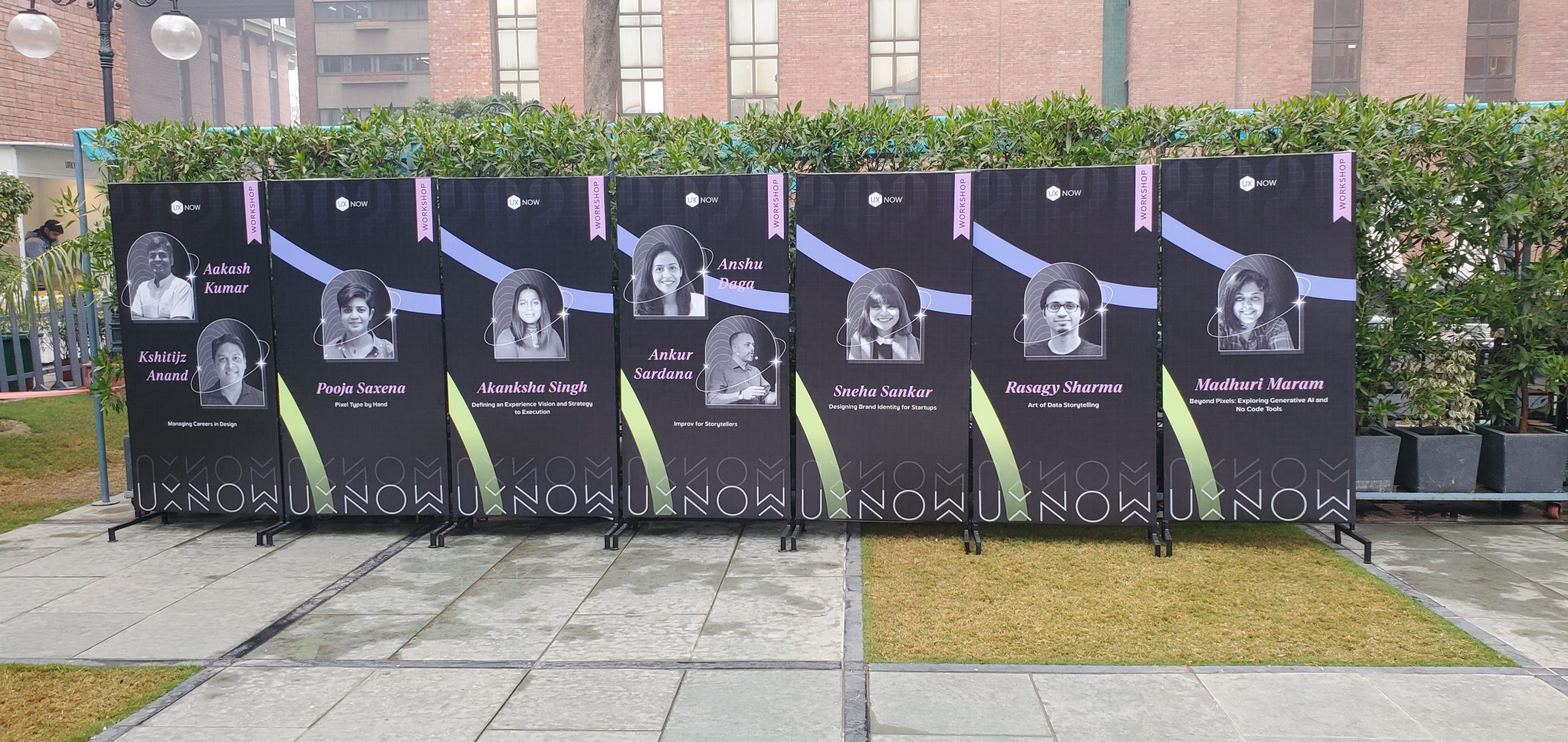
The two days of the event not only served as a platform for professionals to deepen their understanding of the evolving landscape of UX but also fostered valuable connections through networking opportunities and moments of relaxation during coffee breaks and a delightful lunch at the exquisite India Habitat Center in New Delhi.
UXNow 2024 left participants with a renewed enthusiasm for the ever-expanding horizons of user experience design, encapsulating the essence of innovation, collaboration, and a shared commitment to shaping the future of UX.








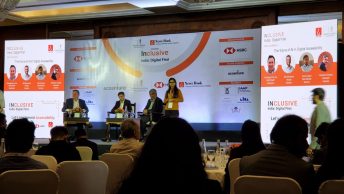
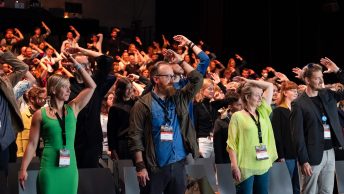
Who moderated the panel discussion on AI and its impact on design at the conference?
The panel discussion on AI was moderated by Parag Anand, Head of the Department at the Department of Industrial Design, SPA New Delhi.